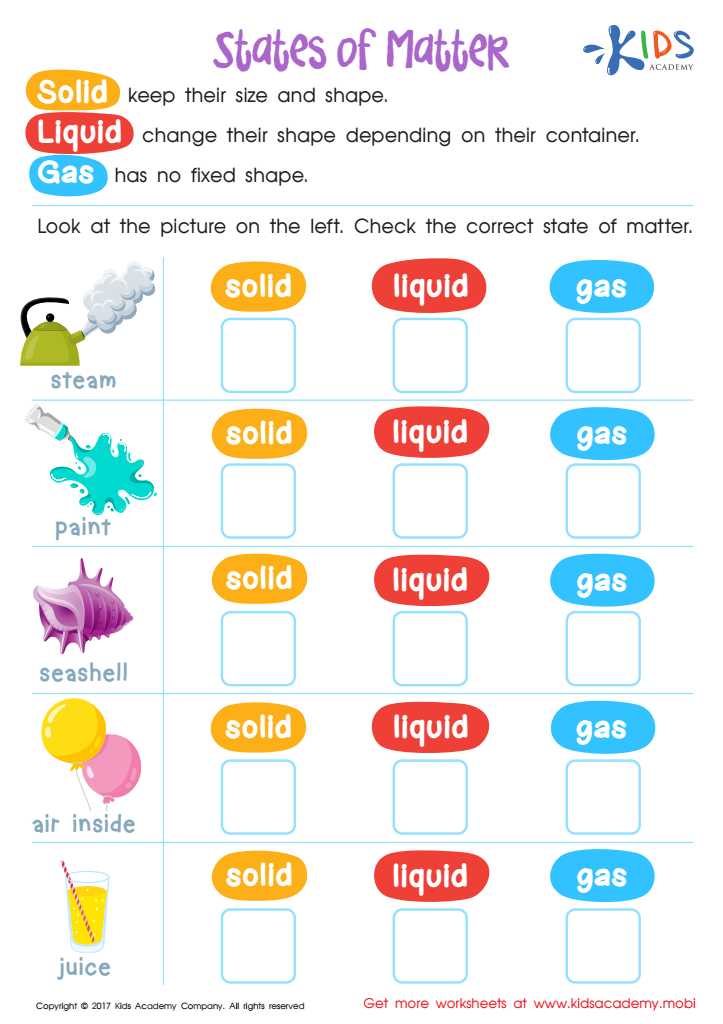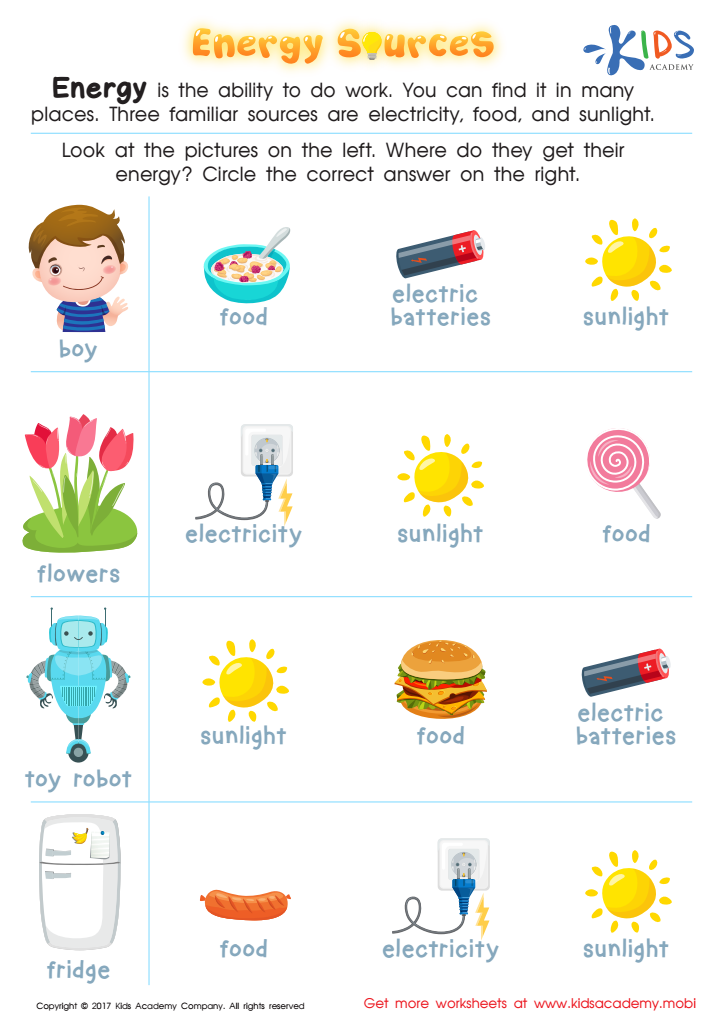Normal Physical Science Worksheets for Ages 7-8
3 filtered results
-
From - To
Discover engaging and educational normal physical science worksheets for ages 7-8 at Kids Academy. Our expertly designed materials cover fundamental topics such as force, energy, matter, and simple machines, fostering curiosity and scientific inquiry. Perfect for young learners, these printable resources include hands-on activities, visual aids, and easy-to-follow instructions to make learning fun and effective. Enhance your child's understanding of the world around them with our comprehensive worksheet collection that supports cognitive development and critical thinking skills, ensuring a strong foundation in physical science. Visit Kids Academy and explore our diverse range of age-appropriate science worksheets today!


Physical Science: States of Matter Worksheet


Sink or Float Printable


Energy Sources Printable
Normal Physical Science is fundamental for children aged 7-8 as it instills curiosity, critical thinking, and foundational knowledge about the world. At this developmental stage, children are naturally inquisitive, and introducing them to basic concepts in physical science nurtures and channels this curiosity productively. By exploring elements like gravity, energy, and the properties of materials through hands-on experiments and interactive activities, kids start to understand how things work, fostering a lifelong interest in learning and discovery.
For parents and teachers, emphasizing physical science education helps develop essential skills such as observation, problem-solving, and logical reasoning. These skills are not only important for academic success but are also critical in everyday decision-making and future professional environments. Moreover, a strong grounding in physical science supports interdisciplinary learning, linking to math, technology, and literacy, thereby providing a holistic educational experience.
Additionally, as our world becomes increasingly driven by science and technology, early exposure prepares children for future challenges and opportunities in the STEM fields. It also helps demystify scientific concepts, making children more confident and capable of engaging with complex ideas. Ultimately, investing in physical science education for young children places them on a path to become informed, thoughtful, and innovative members of society.

 Assign to the classroom
Assign to the classroom












